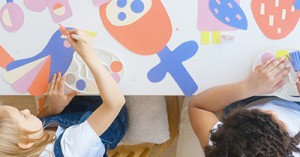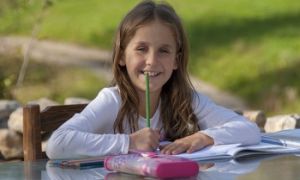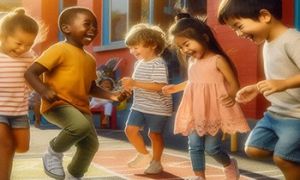Reflective teaching helps educators refine their approaches, understand children’s needs, and foster a culture of continuous growth. This guide provides discussion prompts to support meaningful reflection and professional development.
Self-Reflection Prompts
- What teaching strategy worked best today, and why?
- How did the children respond to today’s activities?
- What was the biggest challenge I faced today, and how did I handle it?
- How can I adapt my approach to better meet individual learning needs?
- What emotions did I notice in myself while teaching today, and what might they indicate?
- What are my strengths as an educator?
- What professional development opportunities would benefit me?
- How do I stay motivated and engaged in my role?
Peer Reflection Prompts
- Can you share a moment when you felt particularly effective in the classroom today?
- What techniques have you found useful for managing classroom dynamics?
- How do you encourage creativity and exploration among children?
- What’s one strategy that has worked well for you that others might try?
- How do you balance structured learning with free play?
Leadership Reflection Prompts
- How do I inspire and support my team in their professional growth?
- In what ways do I model reflective practices for educators?
- How do I encourage educators to embrace a growth mindset?
- What feedback methods have I used, and how can I improve them?
- How can I create a more collaborative and supportive team culture?
Continuous Improvement Prompts
- What’s one new technique or approach I’d like to experiment with in the classroom?
- How do I ensure my teaching aligns with children’s developmental needs?
- What professional development opportunity would benefit me or my team?
- How can I integrate feedback from peers or families into my teaching?
- How do I stay motivated and engaged in my role as an educator?
Further Reading
Reflective Practices In Childcare
Educators Guide To Critical Reflections
How To Write Critical Reflections For The National Quality Standards
Reflection Vs Critical Reflection
Reflections In Action Posters
Reflection Questions For Quality Area 1 to 7







 Here is the list of the EYLF Learning Outcomes that you can use as a guide or reference for your documentation and planning. The EYLF
Here is the list of the EYLF Learning Outcomes that you can use as a guide or reference for your documentation and planning. The EYLF The EYLF is a guide which consists of Principles, Practices and 5 main Learning Outcomes along with each of their sub outcomes, based on identity,
The EYLF is a guide which consists of Principles, Practices and 5 main Learning Outcomes along with each of their sub outcomes, based on identity, This is a guide on How to Write a Learning Story. It provides information on What Is A Learning Story, Writing A Learning Story, Sample
This is a guide on How to Write a Learning Story. It provides information on What Is A Learning Story, Writing A Learning Story, Sample One of the most important types of documentation methods that educators needs to be familiar with are “observations”. Observations are crucial for all early childhood
One of the most important types of documentation methods that educators needs to be familiar with are “observations”. Observations are crucial for all early childhood To support children achieve learning outcomes from the EYLF Framework, the following list gives educators examples of how to promote children's learning in each individual
To support children achieve learning outcomes from the EYLF Framework, the following list gives educators examples of how to promote children's learning in each individual Reflective practice is learning from everyday situations and issues and concerns that arise which form part of our daily routine while working in an early
Reflective practice is learning from everyday situations and issues and concerns that arise which form part of our daily routine while working in an early Within Australia, Programming and Planning is reflected and supported by the Early Years Learning Framework. Educators within early childhood settings, use the EYLF to guide
Within Australia, Programming and Planning is reflected and supported by the Early Years Learning Framework. Educators within early childhood settings, use the EYLF to guide When observing children, it's important that we use a range of different observation methods from running records, learning stories to photographs and work samples. Using
When observing children, it's important that we use a range of different observation methods from running records, learning stories to photographs and work samples. Using This is a guide for educators on what to observe under each sub learning outcome from the EYLF Framework, when a child is engaged in
This is a guide for educators on what to observe under each sub learning outcome from the EYLF Framework, when a child is engaged in The Early Years Learning Framework describes the curriculum as “all the interactions, experiences, activities, routines and events, planned and unplanned, that occur in an environment
The Early Years Learning Framework describes the curriculum as “all the interactions, experiences, activities, routines and events, planned and unplanned, that occur in an environment


